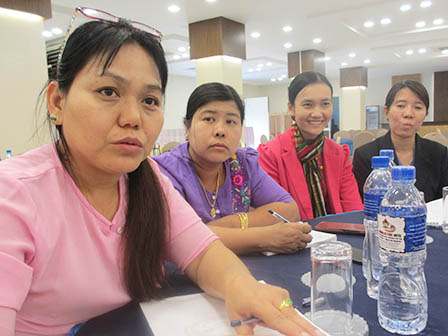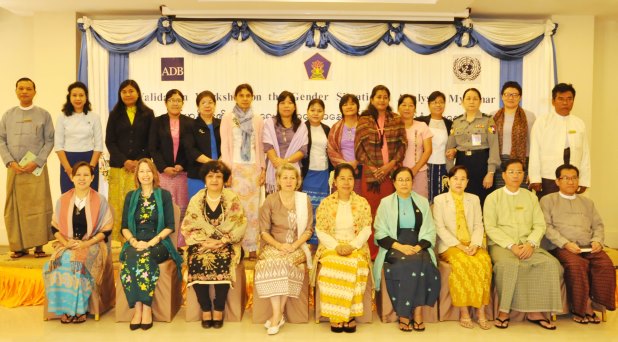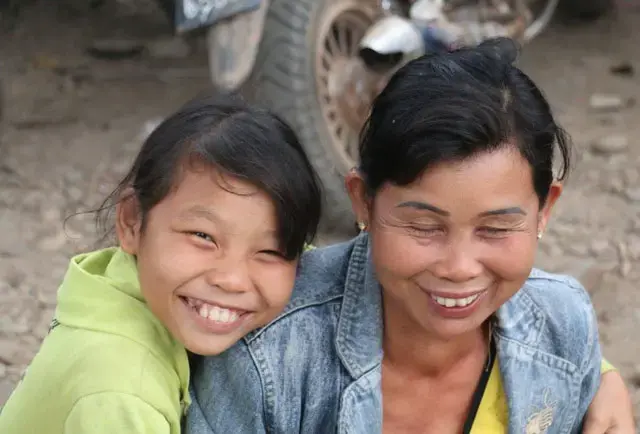Yangon - Myanmar’s Ministry of Social Welfare, Relief and Resettlement (MSWRR) has given its endorsement for publishing the country’s Gender Situation Analysis (GSA); a publication that consolidates existing data in Myanmar on gender equality and women’s rights in the current socio-economic and political context of Myanmar.
Over 221-pages (260 pages in its Myanmar equivalent) the GSA sets out an in-depth analysis of six critical areas of women’s lives. These include: poverty reduction, livelihoods and full and equal participation in the economy; education; health; women’s and girls’ rights to freedom from all forms of violence; political processes and governance; and the peace process. It ends with conclusions that examine gains and gaps within and between different sectors and sets out recommendations to address the legal framework for women’s and girls’ rights, addressing policy-practice inconsistencies and contradictions, and ensuring parity across the country in terms of opportunities for women and girls to meet their aspirations, and reach their full potential so that they have equal status, chances and benefits as men. The GSA also shows the trends in reaching the MDG-related indicators.
The GSA, supported by the UN and the Asian Development Bank, and produced over a period of 18 months, is intended to be used as a baseline for monitoring future state action as well as for providing policy advice in addressing the persistent manifestations of gender inequality, according to UNFPA and UN Women. The GSA, they said, is timely and provides a solid base against which MSWRR can work with partners in civil society, the private sector, government, the UN, Donor and INGOs to plan strategically and forthrightly for the implementation of the National Strategic Plan for the Advancement of Women. This, they said, is part of a shared vision for social justice and human rights.

The two-day validation workshop took place 16-17 January in Nay Pyi Taw and the event was opened by MSWRR’s Minister, Dr Myat Myat Ohn Khin, who said: “Women are more than half of the population and upgrading their role and status, will upgrade the whole of society. So the advancement of women should be one of the areas that is most prioritised in the future development of the country and in national building”. She also emphasised that the President, in the recent Women’s Forum, emphasised the importance of gender equality and women’s empowerment.
The workshop was attended by 41 participants from 28 Ministry departments and organisations, including UN agencies, Asia Development Bank and Gender Equality Network (GEN) and Women’s Organisation Network (WON).
Participating in the event was Ohnmar Rangmi, who at the level of Police Lieutenant Colonel, is also the most senior and highest ranking female officer in the Myanmar Police Force, under the Ministry of Home Affairs. She reached this level after almost 30 years of being in the Force and having consistently excelled in every aspect of her work, which in itself is an accomplishment rarely achieved by others who had already been promoted. Asked why she had joined the Police Force, she said her fascination with detective stories was what attracted her to join the Police. In reaching the level of Lieutenant Colonel in 2012 and being the first woman to climb the promotion ladder in the context of the new Government reforms, this set a precedent for others to follow. Since then, some 20 other women have followed suit and risen to the same rank. As a CEDAW report writing committee member and a participant at the GSA validation workshop, she said: “… The GSA document contains so much information about many aspects of gender and women’s rights. This can be used to make women and men more aware and give them a new set of values… Women especially are largely in the dark when it comes to equality and the understanding of human rights… The GSA can help bring more opportunities for women’s equality”.

Her profession is just one of many others where women still find themselves against a glass ceiling when it comes to professional advancement.
Over the two days, several participants shared their experiences of women having to meet higher qualification standards to gain entry into certain professions, only then to have to train longer before they become qualified and after that, required to practice longer before they are promoted.
MSWRR will work over the next weeks to integrate final suggestions and changes into the GSA from the validation workshop in order to be ready, after official processes are completed, for release in June.





